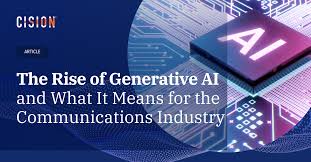Introduction:
Medicines play a pivotal role in modern healthcare, serving as a cornerstone for treating illnesses, alleviating symptoms, and improving overall well-being. From ancient herbal remedies to cutting-edge pharmaceuticals, the realm of medicines Fitspresso a vast array of substances designed to heal, manage, and prevent diseases. In this article, we delve into the multifaceted world of medicines, exploring their impact on society, the various types available, and the promising future they hold.
The Impact of Medicines:
The impact of medicines on society cannot be overstated. They have revolutionized healthcare by significantly reducing morbidity and mortality rates, extending life expectancy, and enhancing quality of life for countless individuals worldwide. Medicines have eradicated or effectively controlled many once-deadly diseases, such as smallpox, polio, and tuberculosis, marking monumental achievements in public health.
Furthermore, medicines play a crucial role in managing chronic conditions, such as diabetes, hypertension, and asthma, allowing patients to lead fulfilling lives despite their health challenges. They also mitigate symptoms, alleviate pain, and improve comfort for patients battling terminal illnesses, offering relief and dignity in their final stages of life.
Types of Medicines:
Medicines come in various forms and serve diverse purposes, catering to the specific needs of patients and the nature of their ailments. Broadly categorized, medicines can be classified into several types:
- Prescription Medicines: These are medications that require a prescription from a licensed healthcare provider, such as physicians or nurse practitioners. They are typically used to treat serious medical conditions or those requiring professional diagnosis and supervision.
- Over-the-Counter (OTC) Medicines: Available without a prescription, OTC medicines are used to alleviate common ailments, including headaches, allergies, and minor aches and pains. They are easily accessible and offer convenience for individuals seeking self-care solutions.
- Herbal and Alternative Medicines: Derived from plants, herbs, or natural sources, these medicines have been used for centuries in various cultures for their purported therapeutic benefits. While some herbal remedies have proven efficacy supported by scientific evidence, others lack robust research and may pose risks or interactions with conventional medications.
- Vaccines: Vaccines are biological preparations designed to stimulate the immune system against specific infectious agents, thereby preventing diseases. They have been instrumental in controlling and eradicating deadly infections, such as measles, polio, and influenza, and continue to be a cornerstone of preventive healthcare.
- Biologics: Biologic medicines are derived from living organisms, such as cells, proteins, or nucleic acids, and are used to treat complex conditions like cancer, autoimmune disorders, and genetic diseases. They represent a rapidly growing segment of the pharmaceutical industry, offering targeted and personalized therapies.
Future Perspectives:
As technology advances and our understanding of diseases deepens, the future of medicines holds immense promise. Emerging fields such as precision medicine, gene therapy, and immunotherapy are revolutionizing treatment approaches, offering tailored interventions based on individual genetic makeup, biomarkers, and immune responses.
Moreover, artificial intelligence (AI) and big data analytics are reshaping drug discovery, accelerating the identification of novel compounds and optimizing treatment protocols. These innovations hold the potential to streamline clinical trials, reduce drug development costs, and bring life-saving therapies to market more rapidly.
However, alongside these advancements come ethical, regulatory, and accessibility challenges. Ensuring equitable access to medicines, addressing disparities in healthcare delivery, and safeguarding patient privacy and autonomy remain paramount concerns as we navigate the evolving landscape of healthcare and pharmaceutical innovation.
In conclusion, medicines are indispensable tools in modern healthcare, driving advancements in treatment, prevention, and disease management. From traditional remedies to groundbreaking biotechnologies, the world of medicines continues to evolve, offering hope, healing, and improved health outcomes for individuals and communities worldwide. As we embark on this journey of discovery and innovation, let us strive to harness the power of medicines for the betterment of humanity, ensuring that they reach those in need and pave the way for a healthier, more equitable future.


